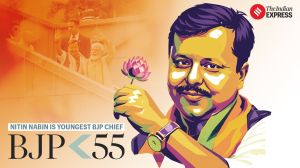Protect the pen
We, concerned scholars of South Asia, condemn the attacks on Taslima Nasreen, by extremist forces in West Bengal.

8226; We, concerned scholars of South Asia, condemn the attacks on Taslima Nasreen, by extremist forces in West Bengal. Freedom of speech, and expression must be defended by those who are genuinely committed to these values. The Government of Bengal has, regrettably, not fulfilled its obligation to do so, even as it disregards the real interests of Muslim communities, forcibly acquiring land for industrial development, much of it from poor Muslims.
We also deplore the hypocritical opportunism of Hindu chauvinist groups 8212; including the BJP, who after having participated vigorously themselves in attacking artists and filmmakers such as M.F. Husain and Deepa Mehta are claiming to defend Ms Nasreen. We call on the Bangladeshi and Indian governments to safeguard Nasreen8217;s rights to dignity and freedom of speech and to ensure that she does not become a pawn in an ugly stand-off between Hindu and Muslim chauvinist forces.
8212; Susan Daruvala 038; others Cambridge University,
Barbara Hariss-White
038; others Oxford University,
Gautam Appa 038; others
University of London
Poor AIIMS
8226; Heavens would not have fallen if the government had waited until Monday to sack AIIMS director, P. Venugopal, when the Supreme Court was to take up his petition for hearing. Why this unholy haste? The government should not only act in all fairness, but should be seen to be doing so. It cannot be seen as a party to the settling of the personal scores by individuals. The issue of Dr Venugopal8217;s removal has no significance beyond the four walls of AIIMS. There is no public interest involved. So the legislation passed in Parliament with retrospective effect, designed to disqualify Dr Venugopal, is nothing but an affront to India8217;s parliamentary democracy.
D.S. Bindra
New Delhi
Bitter pill of alliance
8226; We are witness to some of the worst kinds of compromises that political coalitions make in order to retain power. The running feud between Union health minister Anbumani Ramadoss and AIIMS director P. Venugopal has been going on for over a year now. But what takes the cake is the new legislation giving the government the power to fire the AIIMS director and those in similar high-level positions in medical institutions, with three months8217; notice and to retire them at 62. How did they arrive at the specified age? The retirement age, when it comes to Central government employees, is 60. Where is 62 years coming from? In any case, this law is another blot on the face of the UPA . When matters relating to appointment orders and retirement age have to be made into law in order to get at the incumbent director, it reveals how much under the control of coalition partners the UPA is.
8212; S. Kamat Alto Betim
Central auspices
8226; In pursuance of the directives of the Supreme Court of India regarding compulsory registration of marriages, various state governments are in the midst of enacting their state-specific legislation for compulsory registration of marriages. It is difficult to understand why the Centre has not so far acted in this regard. While there is no doubt that the subject of marriage and divorce falls in the Concurrent List of the Constitution, on which both Centre and states can legislate, won8217;t it be wise to have a Central legislation on the subject, so that there is some uniformity in procedures throughout the country? In any case, there is already Central legislation, namely, Registration of Births and Deaths Act, 1969, which can be suitably amended to also incorporate marriage registrations.
8212; Hemant Kumar
Ambala
- 01
- 02
- 03
- 04
- 05































